Presenter: Bron Stuckey
Location: Sydney, NSW, Australia
Twitter: @bronst
Presentation Description: Students in the inaugural Quest Atlantis Student Congress worked to design, plan, program and build virtual worlds missions, games and activities to support the learning of peers around the globe. Much of Quest Atlantis is managed content and curriculum but in the Student Congress it is the students who design the curriculum based on their passions and interests. The teachers role is to support, scaffold and most of the time get out of the way and stop drawing boundaries to limit student creativity and learning 🙂 This video shows how kids built virtual world environments and activities to demonstrate their knowledge and skills and to support the learning of their peers.Your school can readily be part of this exciting program as any student can level up in the game and community to be part of this supportive and creative space. Digital citizenship IS a lived curriculum and activities like these in QA offer opportunities for leadership, mentoring, collaboration and healthy competition.
Link to presentation’s supporting documents:
http://atlantisremixed.org/site/view/Educators
Additional Information:
Teachers wishing to join Quest Atlantis should apply for an educator account to explore the program.
http://atlantisremixed.org/site/qa_application
Then join an online teacher professional development workshop to become a Quest Atlantis certified teacher.
http://atlantisremixed.org/site/pd_list
There is no $$$ cost to the program but there is a professional commitment to attend training and use the program as part of a rich inquiry classroom pedagogy.


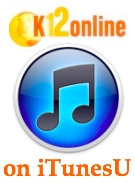

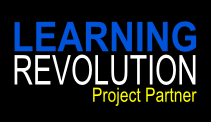
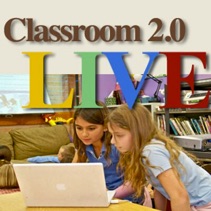
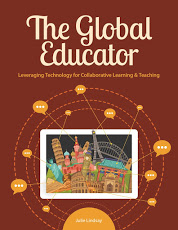
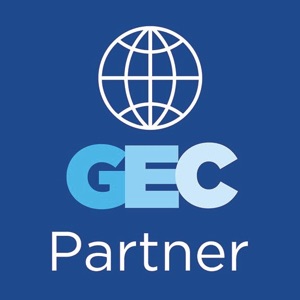
Please leave comments and questions as I am certain the kids will love to be able to respond to you and to hear your thoughts.
Thanks for the presentation, Bron.
And thanks for offering to answer questions.
I wondered a bit about how this works in the classroom — are there periods of Quest or is it embedded into the entire curriculum?
I wonder if your students have found times when the site has been limiting, and how did they push through those limitations?
I also wonder about the ways the site and missions can reach students of all learning levels? (in other words, are most of the students on there for extension activities? Or are there a fair number of students with learning difficulties, as well? I realize this is a sensitive issue so address it as you see fit.)
I have a sense, but I may be wrong, that many of the students are home-schooled students and this site is a great way to integrate community and technology and agency for those who are not in a traditional school setting. But do you have links to classrooms that use the site on a regular basis? That would be helpful.
Finally, in the site description, I noticed this element of “a narrative programming toolkit for remixing user-created stories” and that has me intrigued. Can you or your students tell me more about how that works and what that looks like? (or how it is experienced)
Kevin
For the students:
I know some of you talk about this in the presentation, but could you explain more about what you learned by being part of the project?
If you had to pinpoint a moment when you realized this project is different from anything else you had done, what would that moment be?
What advice would you give teachers thinking about Quest Atlantis so that the experience would be enriching for students? (other than, do it.)
Thanks!
Mr. Hodgson
Pingback: Where’s all the Conversation at K12 Online Conference?
Hi Kevin
The kids who were part of this first congress worked remotely with me on this an extra project. It was a proof of concept as it were. Some were part of a distance education school and some were in regular school districts but they and there teachers met with me over skype to get things going and they worked further within their school and home time.
QA is suited to kids aged 9-15 and we offer curriculum content for that range. That is the core of QA, then as extension places to build and design are offered as part of missions or as kids level up in the game. QA is used in mainstream classes, reading programs, extension, special ed, clubs after school programs – LOADS of places. So not suited to just any one perspective – it depends how the teacher integrates it.
Hey there Kevin,
By being involved in the project we started learning some cool creation skills in the virtual world. From a schooling perspective I would say fine arts also with a bit of personal planning. Along with that I guess you could say we also learned about living in a health community/style. However that only really apply’s to the health communities group. The other groups did environmental awareness and other topics.
If there was a moment when I realized this was different from other projects, could I say right from the start? Creating the world/unit for others to come through and learn with is vastly different from a project where you are told information instead of “creating” the information. Of course we did find most of our sources online, so we didn’t really “create” the information, but we did re-create it in a total different way of looking at it.
If there was any advice I would give to teachers, it would be to allow access to a area in Quest Atlantis called “Q-Ville”. Q-Ville is basically a training ground for building, so when an opportunity comes up to do a real project with or without school credit (hopefully with), building the actual world is easy for them.
Thanks for asking,
David (dabram71 in world)
Hi Kevin,
Working in Student Congress on the Healthy Communities project was very fun but also taught me a lot about eating healthy and exercising. We also learned how to work as a team.
Yes, we are homeschooled but we know quite a few Questers who go to school who enjoy Quest Atlantis just as much. It is great!
smcrae71
Hi Kevin,
My brother and I had a lot of fun working in Student Congress with Bron.
I am part of a Distance Education School but I do have many Quester friends who go to school.
When we made our mission in Student Congress I learned a lot about eating healthy. We also had to learn how to work together on a project.
The advice I would give to teachers thinking about Quest Atlantis is that they should try it because it is a great learning tool. Also, if the teachers get stuck then ask other students(questers) for help…we are always willing to help each other out. 🙂
Thanks for watching the video.
tmcrae71
Thank you, Bron, David, tmcrae71 and smcrae71, for the great responses and inside information about the Atlantis project space. It is very helpful. I know I have a fair number of students (I teach sixth grade — 11 year olds) who enjoy Minecraft, and constructing worlds, so that is why I am curious about this kind of experience that leverages those interests while also tapping into learning, community and cross-curricular ideas.
Sincerely,
Kevin